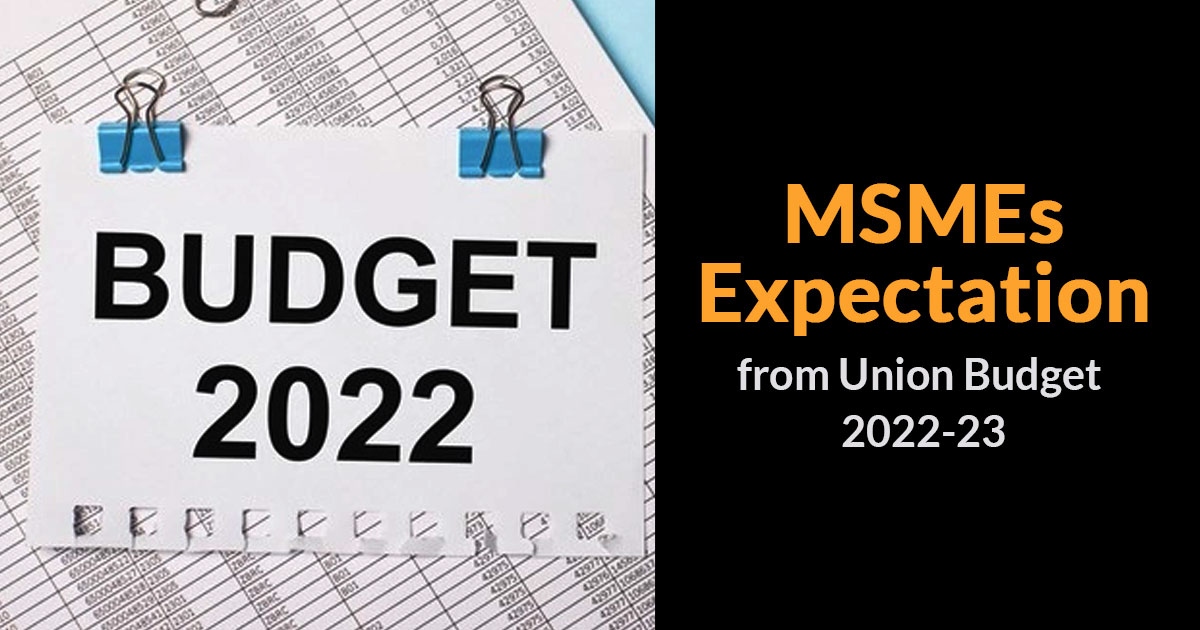
The industry bodies look to start consultations within the government towards the Union Budget 2022-23, GST rationalization, and diminish the load of the laws, especially the topmost expectations of the MSMEs.
The finance ministry asked for the recommendation on the taxation from the industry and trade bodies as a parent to the budget for 2022-23. Every year the budget is to be strictly followed and also this year there is no difference from the former years. The economy continues to improvise since the country faces the covid situation from the pandemic the small scale business has been hit harder.
The MSME sector in India is urged to be the 2nd biggest employment provider post to agriculture which furnishes the job to nearly 11 cr. It provides 30% of Gross Domestic Product (GDP) and approaches 48% of exports. Also, the Government of India has showcased the GDP Data for FY 2021-21 1st Quarter (April to June 2021).
Diminish the Compliance
Discussing to Moneycontrol, Ramamurthy – member, All India Council of Association of MSMEs (AICA), that shows 170 MSME organizations in the country mentioned that the simplicity of performing the business towards the small entities should rectify and the imposition of the compliance to every concern even GST, loans, licensing or audit need to lessen and statutory compliance must be least.
“Vinod Kumar, president of India SME Forum, stated Compliance needs to drop drastically. Countries around the world have primarily eased compliance for enterprises which are under a million dollars. So we need to figure out how to reduce compliance whether it is GST or income tax.”
Ramamurthy and Kumar mentioned that the under-the-law burden on small businesses can influence productivity and take much time.
Rationalization GST
“Already the prices of the raw materials are very high and not controlled so the government should at least rationalise the GST on manufacturing for micro and small enterprises. GST for manufacturing should be brought down to 12 per cent from 18 per cent, mentioned by Ramamurthy.”
Kumar pointed out that “We are in a situation wherein on certain products, GST is the same whether you buy it from a Rs 50 lakh company or from a Rs 500 crore turnover company. So while the government is asking us to buy from small manufacturers, how will they be cost-effective or competitive?”
He sees that while GST must be present towards every trade as well as a product, the GST framework is urged to be rationalized towards small businesses.
Read Also: Easy Procedure of MSME Registration in India
Other Needs:
Ashok Saigal, Co-chairman of CII’s (Confederation of Indian Industry) National MSME Council and MD of Frontier Technologies, a small-scale manufacturing company, announced the tax advantage upon Research and Development expenditure obliged to be returned because the government is contending a rise in technology, technological development, and approach towards the small business sector.
“Earlier there was a weighted benefit. If you spend say, Rs 100 for R&D, you will get a tax benefit of more than Rs.100, he points.”
Towards 2016-17, the advantage was 200 per cent, in 2017 it was diminished to 150%. It was eligible till 1st April; 2020 thus we urge that this must be retained to 200%.
Additional money is sought towards the Long term capital gain upon sailing of the industrial property. Tax experts rendered that the person who sells the residential property than for those the long term capital gains is not applicable. But if the situation is when the firm sells out the industrial compound and proceeds to the bigger space then they need to furnish the capital gains tax that diminishes the funds available to invest and diminish the development of the MSMEs.